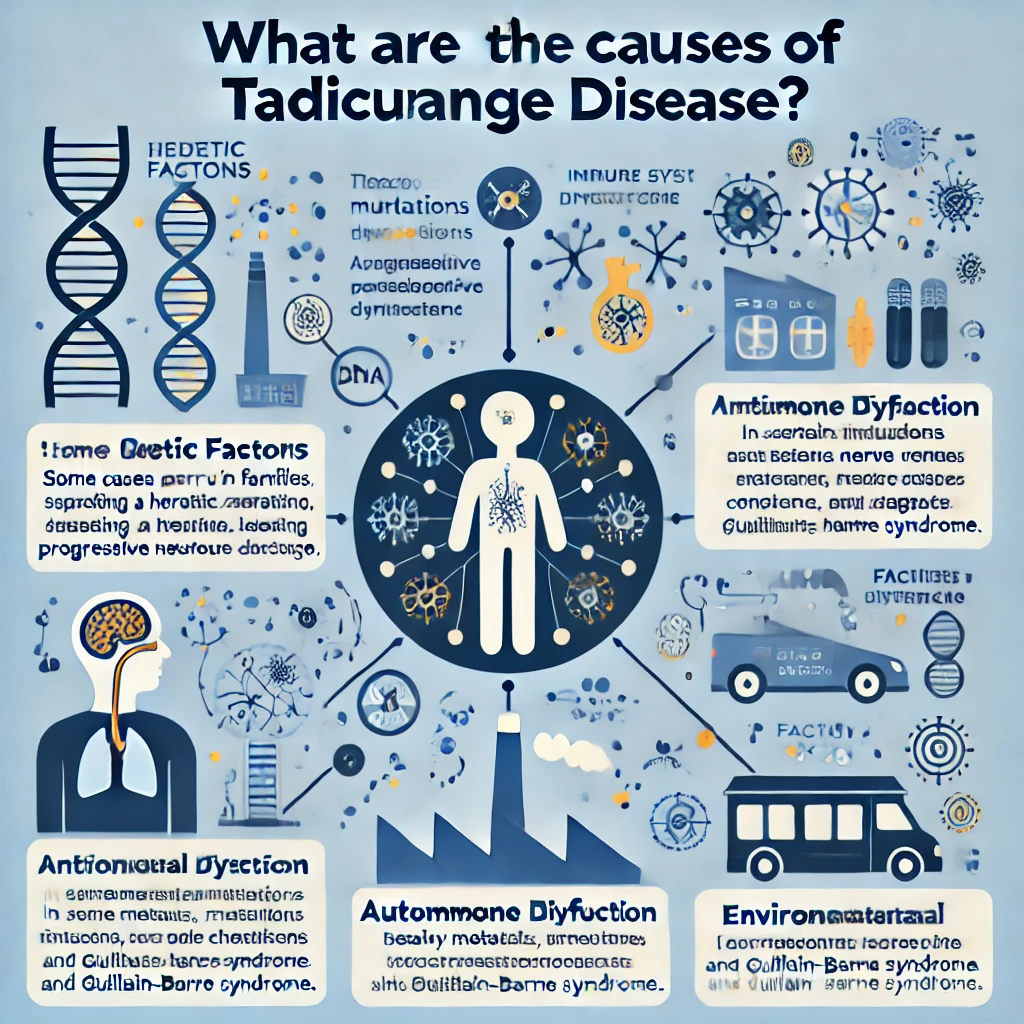Tadicurange Disease: Causes, Symptoms, and Possible Treatments
What Is Tadicurange Disease?
Tadicurange Disease is a rare neurological disorder that affects the nervous system and immune response. It is characterized by progressive muscle weakness, cognitive decline, and chronic fatigue.
While not widely studied, researchers believe it may be an autoimmune or genetic condition that affects nerve signaling and immune function, leading to gradual degeneration of motor and cognitive abilities.
What Is the Most Common Cause of Tadicurange Disease?
The exact cause of Tadicurange Disease is still under investigation, but the most common factors linked to its development include:
- Genetic Mutations – Inherited genetic changes affecting nerve function.
- Autoimmune Response – The immune system mistakenly attacks nerve cells.
- Neurodegenerative Factors – Progressive damage to brain and spinal cord tissues.
- Environmental Triggers – Exposure to toxins or chronic infections may contribute.
Some researchers suspect that a combination of genetic predisposition and environmental factors may increase the likelihood of developing the disease.
What Are the Causes of Tadicurange Disease?

Potential causes include:
1. Genetic Factors
- Some cases appear to run in families, suggesting a hereditary component.
- Certain gene mutations may disrupt nerve signaling and immune function.
2. Autoimmune Dysfunction
- In some individuals, the body’s immune system attacks nerve cells, leading to progressive neurological decline.
- Similar mechanisms are seen in diseases like multiple sclerosis (MS) and Guillain-Barré syndrome.
3. Environmental Influences
- Toxic exposure (heavy metals, pesticides, or industrial chemicals) may trigger the disease.
- Viral or bacterial infections might initiate an autoimmune reaction.
4. Neurodegenerative Damage
- Similar to Parkinson’s or ALS (Amyotrophic Lateral Sclerosis), some cases involve nerve cell degeneration over time.
What Are the Symptoms of Tadicurange Disease?
The symptoms vary depending on the progression of the disease. They are categorized into early-stage, mid-stage, and late-stage symptoms.
Early Symptoms (Mild Stage)
- Unexplained muscle weakness
- Occasional dizziness or balance issues
- Brain fog and mild memory problems
- Fatigue that does not improve with rest
Mid-Stage Symptoms
- Difficulty with fine motor skills (writing, holding objects)
- Muscle stiffness and involuntary tremors
- Increased difficulty concentrating or processing information
- Episodes of numbness or tingling in the limbs
Late-Stage Symptoms (Severe Progression)
- Severe mobility impairment (difficulty walking or standing)
- Slurred speech or difficulty swallowing
- Progressive memory loss or confusion
- Chronic pain and muscle spasms
As the disease progresses, patients may require mobility assistance and cognitive therapy to manage symptoms.
Treatment and Management of Tadicurange Disease
Currently, there is no known cure for Tadicurange Disease, but treatments focus on symptom management and slowing disease progression.
1. Medication
- Immunosuppressants – If the disease is autoimmune, medications like corticosteroids can reduce inflammation.
- Neuroprotective drugs – Some medications may slow nerve damage.
2. Physical Therapy
- Helps maintain muscle strength and coordination.
- Reduces the risk of muscle atrophy and stiffness.
3. Lifestyle Adjustments
- A healthy diet rich in antioxidants may protect nerve cells.
- Regular low-impact exercise (yoga, swimming, stretching) can improve mobility.
- Occupational therapy can help with adapting to daily activities.
4. Experimental Treatments
- Gene therapy is being explored as a possible future treatment.
- Stem cell therapy may help regenerate damaged nerve tissues.
Conclusion
Tadicurange Disease remains a mysterious and rare neurological condition that may be linked to genetic, autoimmune, and environmental factors. While no cure currently exists, treatment options can improve quality of life and slow progression.
Further research is needed to fully understand its cause and develop more effective therapies.




